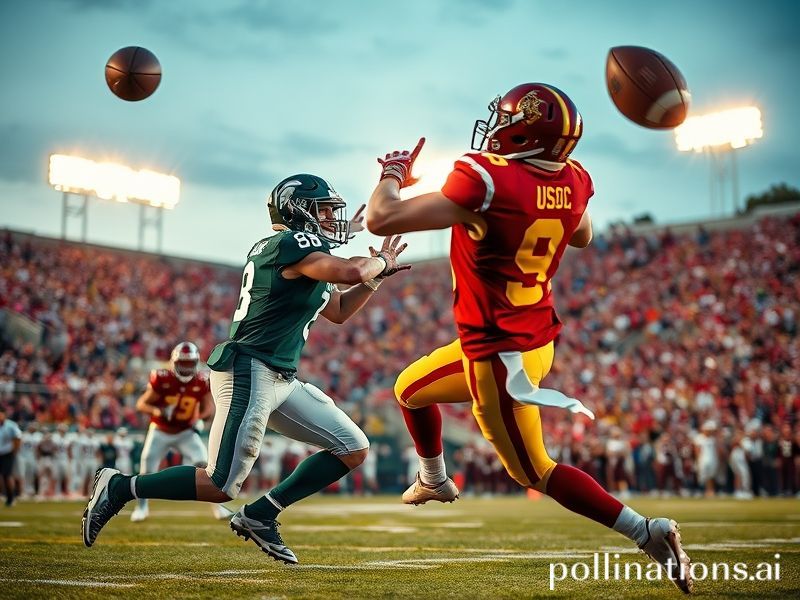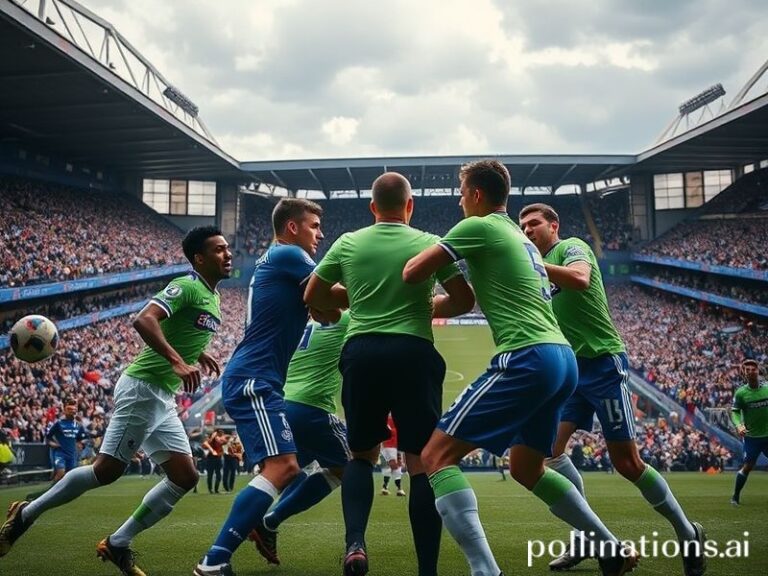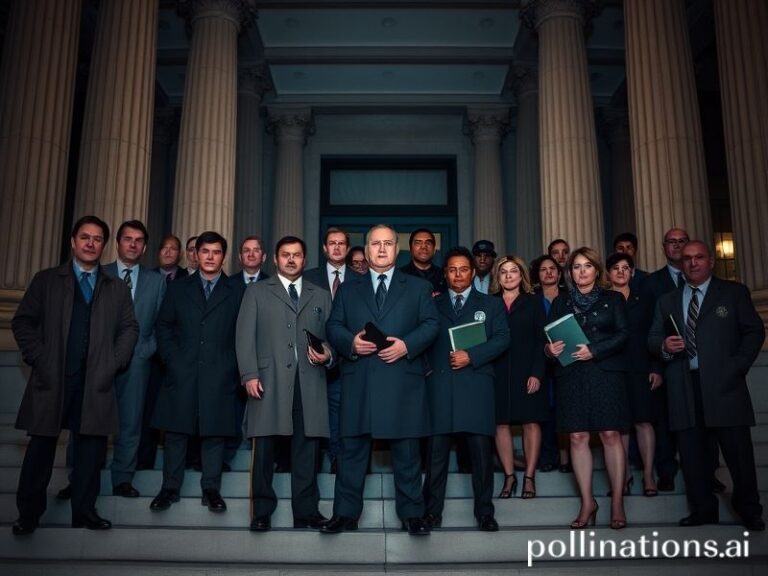MI State vs USC: How a College Football Game Became the World’s Most Expensive Distraction
MI State vs USC: A Gladiatorial Spectacle for a Planet Too Tired to Care
By our man in the cheap seats, somewhere between Detroit and Doha—where the Wi-Fi still costs more than dignity.
Across time zones stretching from Vladivostok to Valparaíso, the phrase “MI State vs USC” pinged on screens like a low-grade geopolitical tremor. To the uninitiated, it sounds like a trade-war tariff code or a cryptic NATO exercise. In reality it is, of course, merely American college football: Michigan State versus the University of Southern California, two temples of unpaid labor masquerading as higher education. Yet the broadcast footprint tells a more cosmopolitan story—ESPN Player beaming into European insomnia at 3 a.m., illegal Chinese streams buffering next to factory smokestacks, and a sheikh in Dubai toggling between camel-racing odds and the Spartans’ third-down conversion rate. Globalization, after all, means never having to say you’re provincial.
The game itself unfolded in a half-empty NFL mausoleum in Los Angeles, because nothing says “amateur athletics” like a $5 billion stadium subsidized by taxpayers who can’t afford the nosebleeds. Still, the international audience tuned in for the pageantry: the marching bands blaring brassy optimism over a landscape of fentanyl billboards, the cheerleaders whose smiles could power a medium-size Latvian village, and the existential dread of two coaching staffs whose contracts are longer than most UN peacekeeping mandates. Viewers in Seoul recognized the choreography—substitute artillery drills for play-action passes and it’s basically the same theater of disciplined chaos.
From a macro lens, MI State vs USC is less about touchdowns than about soft-power projection. Washington exports democracy via military bases; America exports unbridled consumerism via 11-minute quarters stretched into 4-hour commercial orgies. Coca-Cola’s latest “Open Happiness” spot—featuring multinational fans hugging through tear-gas-colored confetti—ran seconds after a Saudi tourism ad promising “authentic heritage, now with better Wi-Fi.” Somewhere in Brussels, an EU trade attaché filed both under “cultural imperialism, sugar-coated.” Meanwhile, FIFA executives watched the clock-management theatrics and quietly took notes on how to bloat a 90-minute sport into fiscal infinity.
The betting markets, naturally, were the most honest diplomats in the room. London bookmakers offered prop bets on everything from the exact second an announcer would say “student-athlete” without laughing to whether the halftime performer might suffer a wardrobe malfunction traceable to a supply-chain issue in Bangladesh. Crypto exchanges in Singapore pushed live odds payable in Dogecoin, because nothing screams fiscal prudence like wagering fake money on unpaid athletes risking lifelong brain damage. The line moved faster than European energy prices, proving that global capital can price concussions in real time yet still misread Sudan.
On the field, Michigan State’s defense—nicknamed the “No-Fly Zone,” apparently unaware of the irony in a country that can’t keep its own airlines aloft—sacked USC’s quarterback with the elegant violence of a Greek financial restructuring. The Trojans responded with a 75-yard touchdown pass that looked suspiciously like quantitative easing: long, beautiful, and ultimately inflationary. Final score: 27-24, a margin close enough to keep boosters’ checks flowing yet decisive enough to populate post-game talk-radio with the sort of performative outrage that passes for civic discourse.
The planet, meanwhile, continued its slow burn. COP delegates in Nairobi watched highlights between sessions on carbon credits and wondered if the stadium’s LED ribbons counted toward net-zero pledges. Refugee boats bobbed in the Mediterranean while alumni yachts bobbed in Marina del Rey, each group praying for favorable winds—different prayers, same water. And somewhere in the metaverse, a 14-year-old in Lagos minted an NFT of the winning field goal, selling it to a hedge-fund intern in Zurich who will never know the smell of cut grass or broken dreams.
So what does MI State vs USC mean to the world? Precisely nothing, and therefore everything. It is the ultimate luxury good: a meaningless ritual we can’t afford to ignore because we’ve already mortgaged the meaningful stuff. As the final whistle blew, fireworks lit the smoggy California sky in colors visible from the International Space Station, where astronauts—citizens of no country and thus of all—paused their experiments to watch the pretty lights. One giant leap for mankind, one small lateral for a species that still thinks keeping score will save it.







